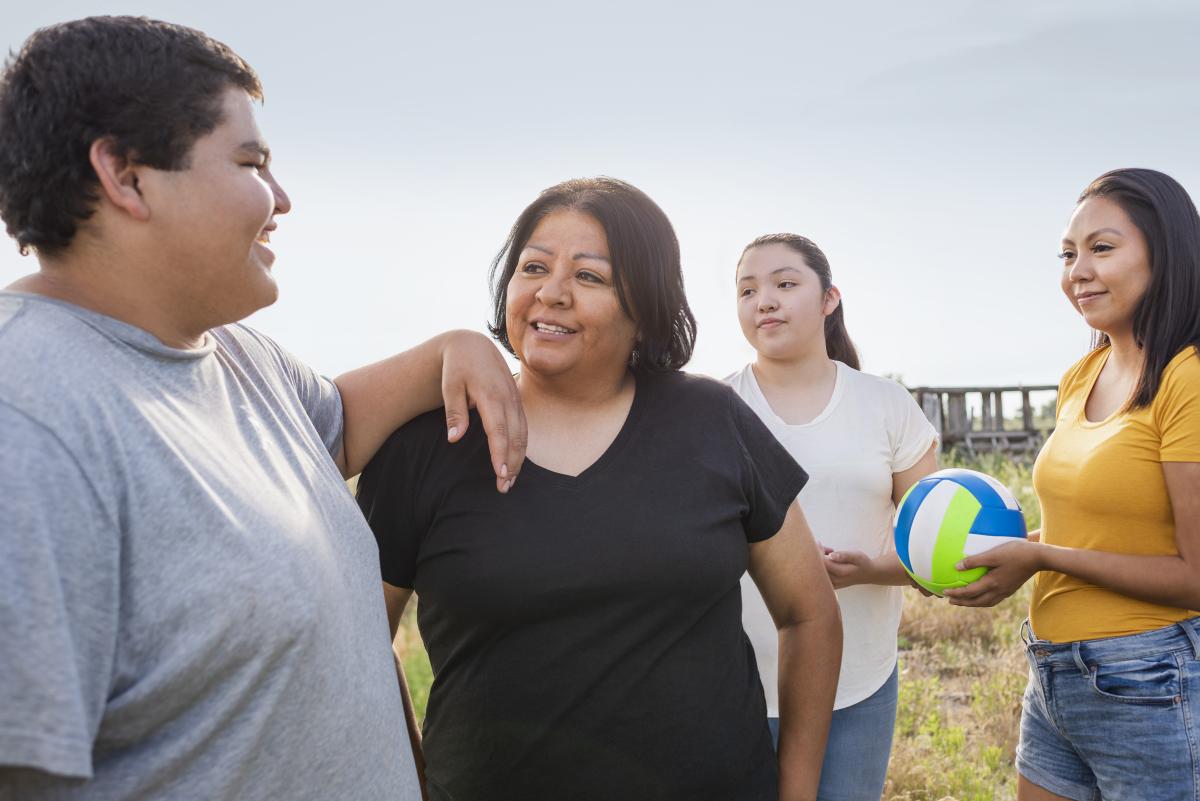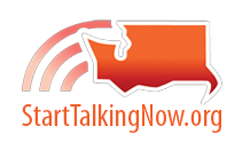
The COVID-19 pandemic is having a big impact on our mental health and teens are especially vulnerable. Because their brains are still developing, and they haven’t had many life experiences yet, all the emotions they are feeling—sadness, anger, stress, and isolation—are more intense. And research shows that during the COVID-19 pandemic, teens are the most likely to show moderate to severe symptoms of depression or anxiety (Mental Health America). Over half of teens reported thoughts of suicide or self-harm in September 2020 (Mental Health America).
The good news is parents and other trusted adults can help.
Know the signs
The first step is to recognize the signs. Every teen is different and their response to traumatic events vary. It can range from “acting out” to “acting in.” “Acting out” can include taking risks like using drugs, fighting, or ignoring safety guidelines about COVID-19. “Acting in” may result in your teen withdrawing, seeming not to care about anything, or wanting to be alone more often (Washington State Department of Health). Other common responses of teens during a disaster include:
- Worry
- Sadness
- Guilt, anger, fear, feeling let down
- Fear that there is no future for them
- Changes in social behaviors, like not seeing friends or changing friends
- Staying busy to avoid feelings
- Alcohol or drug abuse
Ways to help
As a parent, you are the most influential person in your teen’s life. Whether they admit it or not!
Teens may feel more isolated during this difficult time. Without in-person school, seeing friends, or playing sports, they do not have the same support they may have had in the past. That’s why it is so important to check in with your teen. Below are ways you can help (Washington State Department of Health):
- Model self-care and talk about your own feelings in the midst of this disaster.
- Encourage teens to express their thoughts and feelings. Help them identify and manage these emotions.
- Remind them that they are not alone in feeling this way and it’s okay to not be okay right now.
- Encourage them to practice self-care and healthy ways to deal with stress, such as exercise, meditation, getting outdoors, or any activity that brings them a sense of happiness or peace. Teens can find ideas at You Can.
- Discuss (without lecturing) the dangers of unhealthy ways of coping, such as:
- Alcohol or drug use
- Getting involved in violent or illegal activities
- Being in unhealthy relationships
- Discuss the importance of choosing friends who help with good decisions. Encourage relationship building with family and friends.
- Allow and encourage them to help others through this difficult time. For example, they could help start a garden, pick up trash, organize activities for younger children, or help neighbors with grocery shopping.
- Talk with teens about their future. For example, ask “What do you want to be doing in the next year or 5 years?” “What might you be doing now to help reach that goal?” “Are there ways I can help you with some of the activities that move you towards that goal?”
- Start the conversation with your teen in a fun and engaging way with this Truth or Challenge game.
Get support
Teen Link: At times, your teen may feel more comfortable speaking with a peer. That’s okay! There is a confidential and free helpline staffed by trained teens from 6 to 10 p.m. PT. Your child can talk to them about whatever is on their mind. Encourage your child to call, text, or chat 1-866-TEENLINK (833-6546). If you’d like, you can speak with the volunteer first before your child does. You can also contact the helpline to discuss concerns about your child using drugs or alcohol.
Washington Listens: Help is available for you as well. Call 1-833-681-0211 or visit WAlistens.org for free and anonymous help. Washington Listens provides support to those who feel sad, anxious, or stressed from COVID-19. It is staffed Monday-Friday from 9 a.m. to 9 p.m. PT and on the weekends from 9 a.m. to 6 p.m. PT. TSR 711 and language access services are available.
Remember, it’s okay to reach out for help. Your teen is looking at how you deal with stress. Finding healthy ways to cope and reaching out when you need support are positive actions for you and for your teen to learn from.
You know your teen best and can help them through this challenging time. Together, you can both emerge stronger. And if you need support, reach out!

